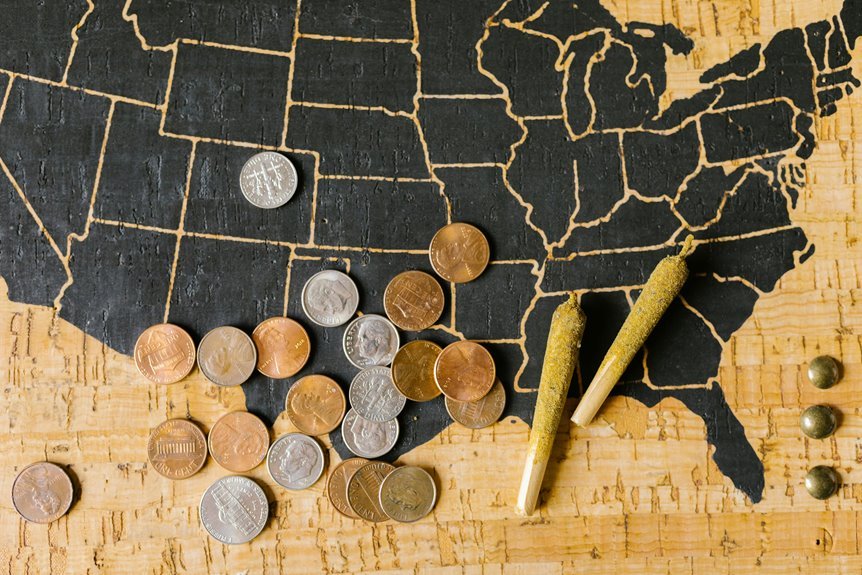The regulation of CBD in the United States presents a complex framework influenced by federal and state laws. Following the 2018 Farm Bill, hemp-derived products with less than 0.3% THC became legal at the federal level. However, state regulations vary significantly, leading to a patchwork of compliance challenges. This inconsistency raises critical questions about consumer safety and market integrity. What implications does this fragmented landscape hold for both consumers and businesses?
Overview of CBD Regulation in the United States
Although the legal landscape surrounding cannabidiol (CBD) in the United States has evolved significantly since the 2018 Farm Bill, which legalized hemp-derived products, regulatory frameworks remain complex and fragmented.
CBD legality varies by state, with some jurisdictions imposing stringent safety standards. This inconsistency creates challenges for consumers seeking reliable products and businesses striving to comply with diverse regulations, ultimately impacting the market's growth and public trust.
Federal Laws Governing CBD
What governing principles dictate the use of CBD at the federal level?
The legality of CBD hinges on the 2018 Farm Bill, which legalized hemp-derived products containing less than 0.3% THC.
Federal enforcement remains focused on ensuring compliance with this framework, while also addressing safety and labeling concerns.
Thus, CBD's legal status is intricately tied to regulatory oversight and evolving interpretations.
State-Level Regulations and Variations
While federal regulations provide a baseline for the legality of CBD, state-level laws introduce significant variations that can complicate compliance for businesses and consumers alike.
Each state has distinct requirements regarding production, distribution, and sales, leading to regulatory challenges. Consequently, state compliance becomes essential, as businesses navigate differing legal landscapes, impacting their operational strategies and consumers' access to CBD products.
Implications for Consumers and Businesses
How do the complexities of CBD regulations impact both consumers and businesses?
The lack of uniformity creates challenges in ensuring consumer safety and complicates business compliance.
Consumers may struggle to identify trustworthy products, while businesses face obstacles in navigating varying laws.
This ambiguity can hinder market growth and consumer trust, ultimately affecting the overall landscape of the CBD industry.
Conclusion
In the intricate tapestry of CBD regulation, the threads of federal and state laws weave a complex pattern that both enlightens and obscures. As businesses navigate this labyrinthine landscape, consumers stand at a crossroads, uncertain of the path to safety and quality. Without a unifying framework, the promise of CBD remains shadowed, like a flickering candle in the dark, illuminating potential but fraught with risks, urging all stakeholders to seek clarity in this evolving domain.





 What Does Cbd Do With Thc
What Does Cbd Do With Thc